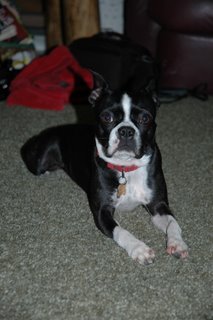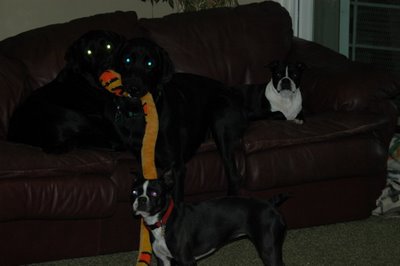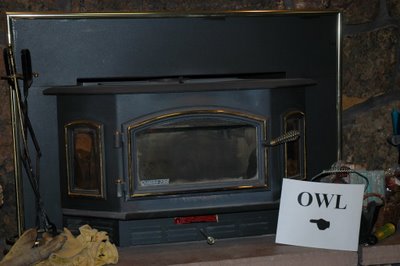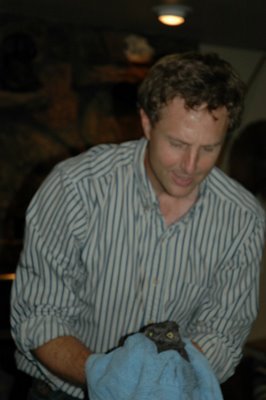I watched the movie
Akeelah and the Bee last weekend. On the whole, it was a thoroughly enjoyable movie. As the case advertised, it was a family-friendly movie. Honesty is the best policy. Love others, even when they’re tough to love. Push each other to be the best they can be. Serve each other, and enjoy doing it. Weep with those who weep. These are all messages that I heard in this movie, which, combined with its engaging and heart-warming plot, make it a “two thumbs up” flick.
There was just one part of it that didn’t sit well with me. About a quarter of the way into the movie, we hear Akeelah read a quote that becomes a sort of a mantra, a motivating element in the movie. It said:
"Our deepest fear is not that we are inadequate. Our deepest fear is that we are
powerful beyond measure. We ask ourselves, Who am I to be brilliant, gorgeous,
talented, fabulous? Actually, who are you not to be? We were born to make
manifest the glory of God that is within us. And as we let our own light shine,
we unconsciously give other people permission to do the same. "
Before I start getting all hyper-picky on you, I’ll tell you what I see of truth in that quote. I can see that for a poor black girl who is growing up in the ghetto, utilizing her gift of being a good speller makes her a social outcast. She is afraid of excelling in school, of speaking with proper grammar, of being too good in a culture that rewards failure and ostracizes achievers. I can see how this quote could also be true in some Asian societies where it shames other people if you are too much better than they are, so students and workers aim to be in the middle of the pack.
But even here, the fundamental fear is not of being too powerful, but of not having power in the way that her particular culture has defined it. In Akeelah’s world, “power” is defined as being cool, not as being smart. In other cultures, “power” is defined as economic success, popularity or looking good. And in those systems, you can never have enough money, friends or good looks – no matter how much you have. It’s a fundamental fact of the human condition that we are not afraid of what we could be, but of what we know we won’t be. We fear that we will never be good enough, smart enough and that, gosh darnit, people won’t like us. We are fundamentally inadequate, and our deepest fear is that we will come face-to-face with this fact some day.
So, you see, I just can’t agree with this quote.* It goes against the testimony of human nature and of the entire history of man. We are power-hungry and can never seem to have enough. Can you imagine Alexander the Great, or Julius Caesar, or Napoleon saying, “I’m so afraid that I’ll wake up one day and find that I have too much power!” Of course not; the Fall itself – and every human sin since then – is characterized by the desire to be our own gods. And, apart from Christ, we won’t be satisfied until we have sated our thirst for being more godlike than God himself.
There was one man in all of history who attained to less and not more power, and that was Christ. He, being in very nature God, deliberately emptied himself (Phil 2:4-11) in order to set us free from the enslaving power of sin. We are now free from the fear that we will be found inadequate, free to recognize the depth of our own sin (the biblical word for "inadequate"), and free to then be afraid of the power that
is within us – the remnants of sin that keep pulling us back into the “old man” but that the Holy Spirit gives us the power to fight against.
(* By the way, I googled the quote and discovered that the ‘speaker’ is someone named Marianne Williamson. She’s not speaking about little black girls in ghettos – she’s white as the day is long, and she’s speaking to yuppie America. She’s one of Oprah’s gurus – a new-age proponent who has ‘empowered’ countless people through this very message. Even though people have mistaken her as being a Christian, several years ago, TIME Magazine got it right when they said of her that, “Yoga, the Cabala and Marianne Williamson have been taken up by those seeking a relationship with God that is not strictly tethered to Christianity." What was that I was saying about wanting to have the power that only God can have – especially the God-Man who said, “I am the way, the truth and the life; no one comes to the Father except by me.”)



 Callie was abandoned at my vet's office a week or two ago. She's a 2 1/2 year old Boston Terrier who looks like a skinny Bailey whose ears stick up better. She's very playful, loves people and is already pretty much trained. She hasn't been well-socialized with other dogs, so she needs to do some learning how to relate to her brother and her cousins, but they're doing a good job of introducing her to the pack mentality. She loves to play tug-of-war and to shake stuffed animals to death ... she was born to be wild!
Callie was abandoned at my vet's office a week or two ago. She's a 2 1/2 year old Boston Terrier who looks like a skinny Bailey whose ears stick up better. She's very playful, loves people and is already pretty much trained. She hasn't been well-socialized with other dogs, so she needs to do some learning how to relate to her brother and her cousins, but they're doing a good job of introducing her to the pack mentality. She loves to play tug-of-war and to shake stuffed animals to death ... she was born to be wild! I'm still adjusting to the idea that I have two dogs, but I find myself liking her a lot, especially when she follows me around with little eyes that say, "You saved me, I love you."
I'm still adjusting to the idea that I have two dogs, but I find myself liking her a lot, especially when she follows me around with little eyes that say, "You saved me, I love you."

 “Tis not a mouse, might be a kitty, or a bunny slightly gritty
“Tis not a mouse, might be a kitty, or a bunny slightly gritty






